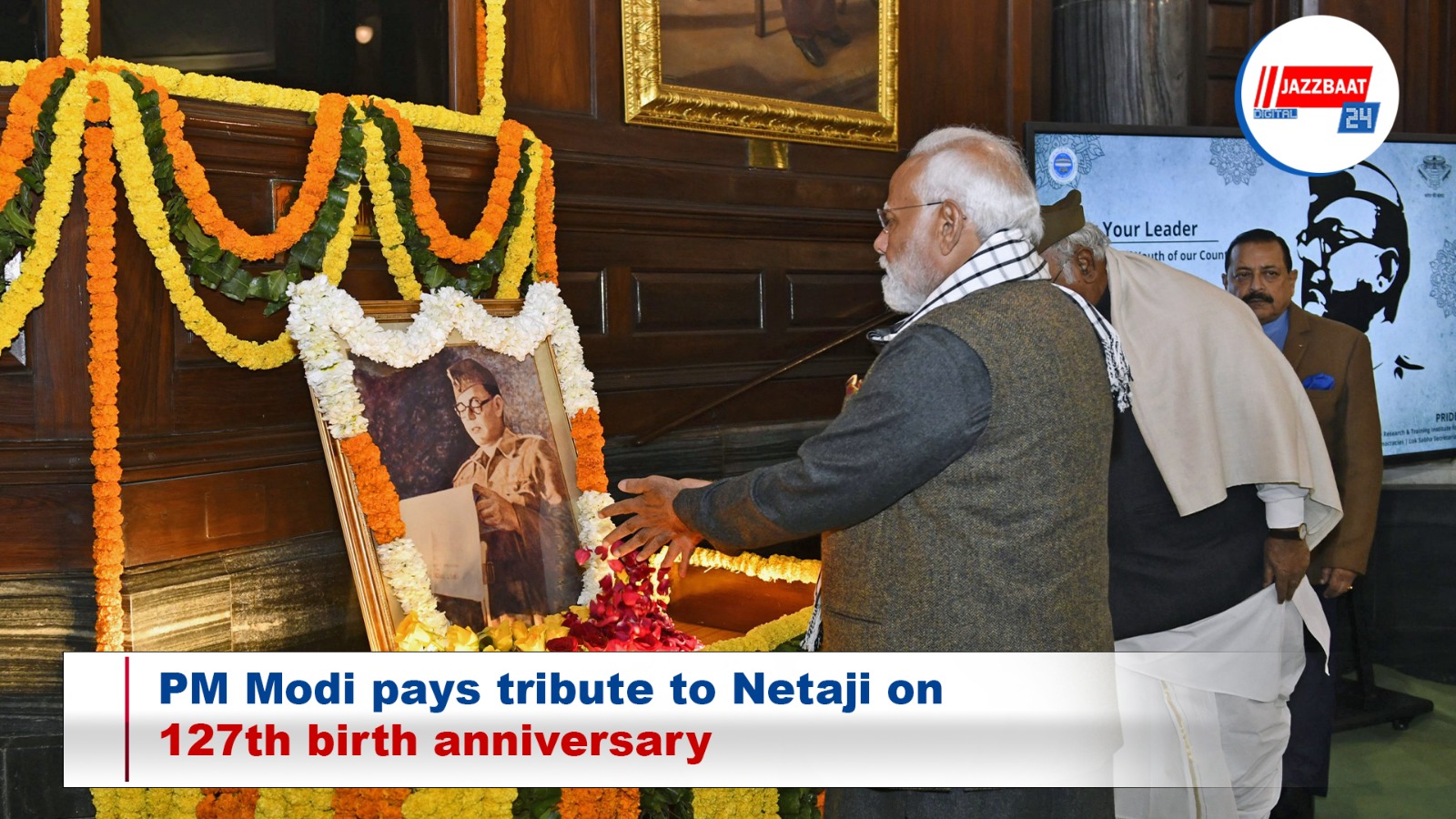
Prime Minister Narendra Modi on Thursday paid tribute to Netaji Subhas Chandra Bose on his 127th birth anniversary, calling him a symbol of courage and perseverance who continues to inspire India’s youth.
On X, PM Modi wrote, “Today, on Parakram Diwas, I pay homage to Netaji Subhas Chandra Bose. His contribution to India’s freedom movement is unparalleled. He epitomised courage and grit. His vision continues to motivate us as we work towards building the India he envisioned.”
Along with his post, PM also shared a video message on Netaji. He said, “Netaji’s life was marked by hard work and valour. He gave up his personal dreams and interests for India’s independence. If he had wished, he could have lived a comfortable life, but instead, he chose the path of sacrifice for a free India.”
Modi also mentioned about Bose’s role in preserving India’s cultural heritage, “Netaji not only opposed foreign rule but also those who questioned India’s legacy. He presented India as the ‘Mother of Democracy’ to the world. His life and work inspires Indian youth.”
President Droupadi Murmu also paid homage to Bose, “On the birth anniversary of Netaji Subhas Chandra Bose observed as Parakram Diwas I pay my humble tribute to one of the greatest sons of Bharat Mata.” She also mentioned about his leadership of Azad Hind Fauj and his unwavering resolve which will continue to inspire generations.
Born on 23rd January 1897 in Cuttack, Odisha Netaji Subhas Chandra Bose is a giant of patriotism and courage. In 2021, Government of India declared his birthday as ‘Parakram Diwas’. This day is to honour his legacy and to inspire citizens especially the youth to emulate his bravery and national pride.
First Parakram Diwas was celebrated in 2021 at Victoria Memorial Hall in Kolkata and in 2022 a holographic statue of Netaji was inaugurated at India Gate. Plans are also afoot to build a National Memorial on Netaji Subhas Chandra Bose Dweep.
Netaji’s life was full of sacrifice and unwavering commitment to justice. Born in a prominent Bengali family he studied at Presidency College in Kolkata but was expelled in 1916 for his nationalist activities.
After completing his degree from Scottish Church College in 1919 he went to University of Cambridge to prepare for Indian Civil Service. He passed the examination in 1920 but withdrew from civil service in 1921 to dedicate himself fully to India’s freedom movement.